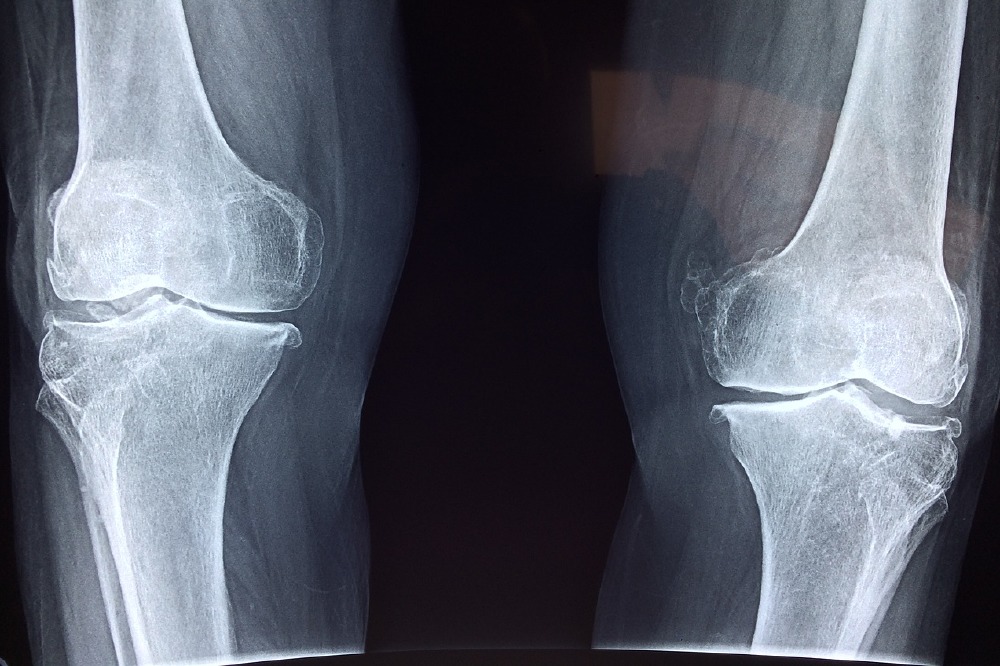According to Dietician, Imogen Wolsey from Fuel PR, her 'Ten Ways to Look After Your Joints', offer a myriad of holistic health benefits, which can boost all-round wellbeing:

Sustain a healthy BMI
Improve Body Composition
Excess body fat makes your body release inflammatory cytokines1, which can cause swollen joints and degeneration. Achieving a healthy Body Mass Index is important, but it's vital to reduce body fat, not just 'lose weight'. Focus on a moderate calorie reduction, consume adequate protein and exercise 2-3 times a week.
Consume Enough Protein
Women are widely advised to eat around 0.8g of of protein, per kilogram of body weight, per day. However, researchers suggest that the RDA may be too low to build optimal bone strength2. Many experts recommend consuming around 1.6g of protein per kilogram of body mass.
Eat a Mediterranean Diet to Control Inflammation
The Mediterranean diet that includes Omega-3 rich oily fish like salmon, nuts, fermented foods, a rainbow-coloured range of vegetables and small amounts of free-range meat and dairy, helps to control inflammation, reduce joint pain and support bone health3,4.
Bone-Building Exercise
Regular exercise helps to provide the stimulus for joint and bone health. Options such as swimming, exercise machines and brisk walking are excellent ways to stimulate bone synthesis, without damaging impact.
Think Plant Calcium
The NHS recommend that adults aged 19-64 years, need 700mg of calcium a day, while other experts recommend women over 50 should consume 800 to 1300mg4,5. Calcium supplements can be helpful, but studies suggest that plant-derived calcium such as LithoLexal is better absorbed than regular pills.
Vitamin C for Joint Generation
Vitamin C helps to generate collagen6, a key component for building cartilage, tendons and ligaments. Have a citrus fruit salad for dessert or a snack – including kiwis, strawberries and oranges.
Protect Joint Oxidation with Vitamin E
Vitamin E is an antioxidant that can help to clear any oxidative damage around the joints and has been shown to help combat markers of inflammation in osteoarthritis sufferers7. Have a handful of blueberries and almonds to boost your intake.
Know Your Vitamin K's
An optimal intake of Vitamin K2 is associated with healthy calcium deposition in the body, leading to potentially stronger bones8. Good sources of K2 include grass fed butter, cheese, free-range eggs and fermented foods like Miso and Kombucha.
Healthy Sun Exposure
Vitamin D helps to absorb calcium and promote bone and joint strength. The NHS suggest9 that most people can benefit from moderate sun exposure to support Vitamin D synthesis; aim for 10 minutes between the hours of 11am and 3pm. Rich sources of dietary Vitamin D include sardines and dairy products.
Optimise Sleep
A lack of sleep time and quality is a risk factor for age-related muscle loss (Sarcopenia) and pre-osteoporotic bone degeneration (Osteopenia)10 .Experts recommend 7-9 hours of relaxing sleep per night. Try meditating before bed – The Journal of the American Medical Association says it improves sleep quality in sufferers of insomnia11.
The key to healthy joints and bones is to create a holistically healthy lifestyle. Once you've done this, adding a calcium-rich joint supplement such LithoLexal to your diet can help to optimise joint and bone health. However, Imogen stresses that many studies question effectiveness of regular calcium supplements, something believed to be contributed to by the poor absorption of rock-based sources of the mineral. In contrast, plant-based joint supplements such as LithoLexal (which contains marine-derived calcium), have been shown to be better absorbed and utilised. Indeed, LithoLexal has been shown to reduce levels of inflammatory cytokines in menopausal women, which are known to negatively affect bone density.
References
1 https://www.ncbi.nlm.nih.gov/pmc/articles/PMC3648822
2 https://www.ncbi.nlm.nih.gov/pubmed/22139564
3 https://www.ncbi.nlm.nih.gov/pmc/articles/PMC5404307/
4 https://www.ncbi.nlm.nih.gov/pmc/articles/PMC4303846/
5 https://www.nhs.uk/conditions/vitamins-and-minerals/calcium/
6 https://www.saga.co.uk/magazine/health-wellbeing/treatments/vitamins-minerals/calcium
7 https://www.ncbi.nlm.nih.gov/pubmed/17076983 coll
8 https://www.ncbi.nlm.nih.gov/pmc/articles/PMC3383525/ vit e
9 https://www.ncbi.nlm.nih.gov/pubmed/11706280
10 https://www.ncbi.nlm.nih.gov/pmc/articles/PMC5411054/#pone.0176685.ref059
11 https://jamanetwork.com/journals/jamainternalmedicine/fullarticle/2110998

